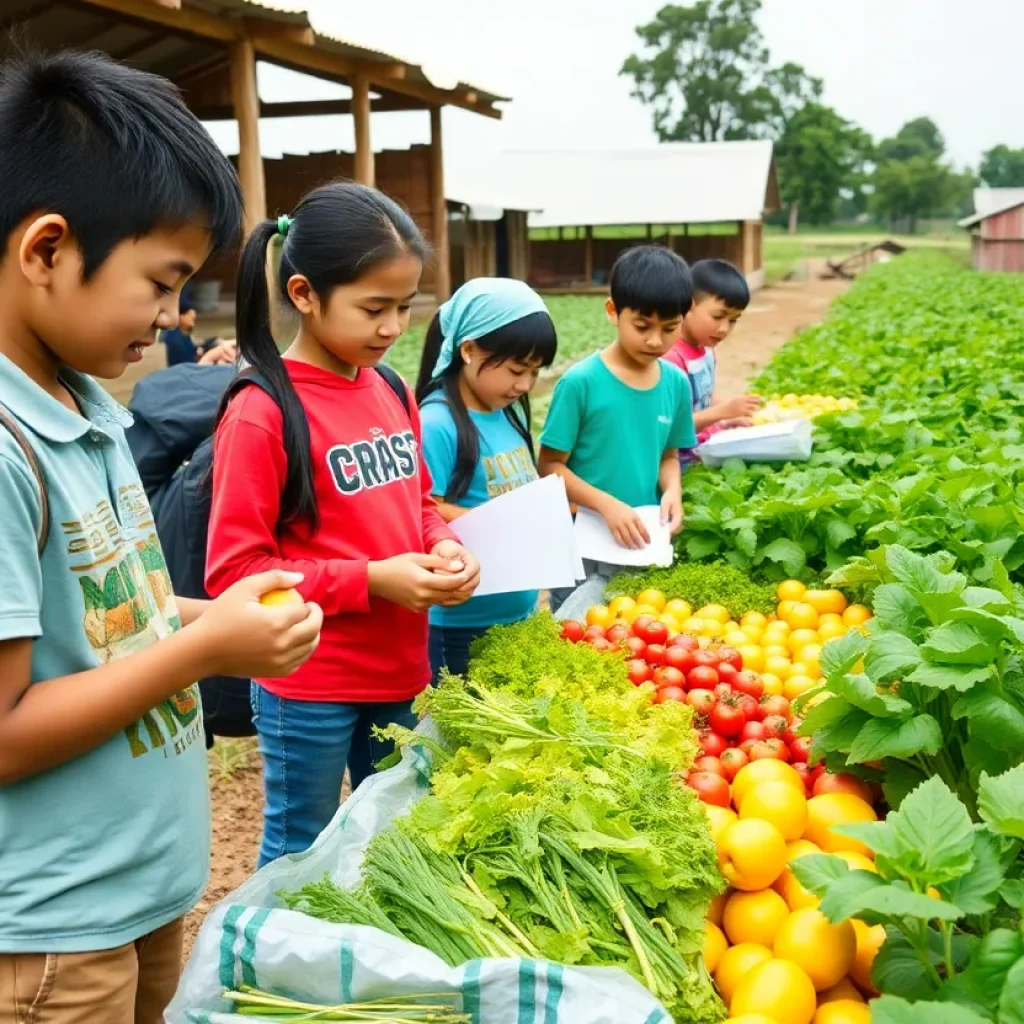

Students participating in hands-on agriculture education at the University of Tennessee's program.
The Agriculture Education Program at the University of Tennessee, ALOFT, is currently paused amidst a comprehensive review of USAID’s spending by the Trump administration. Initially funded for five years, ALOFT’s future now hangs in the balance as a freeze on foreign aid could impact agricultural education programs at various universities. The university is actively monitoring the situation as vital research projects and training programs face potential disruption.
In the vibrant city of Knoxville, big news is making waves, especially for those passionate about agriculture and education. The beloved agriculture education program at the University of Tennessee, known as Agricultural Leaders of Tomorrow (ALOFT), is currently on pause as the administration of President Donald Trump embarks on a comprehensive review of spending at the U.S. Agency for International Development, also known as USAID.
The ALOFT program isn’t just any program; it’s a beacon of hope and learning that aims to enhance agriculture education in Southeast Asia. Spearheaded by the university’s own Smith Center for International Sustainable Agriculture, ALOFT draws volunteers from the U.S. to travel to countries like Cambodia, Thailand, and the Philippines. The goal is to provide insightful two-week technical training focused on building resilient food systems, especially involving the younger generation. Imagine the impact these eager volunteers are making!
Back in 2023, the Smith Center celebrated securing five years of funding from USAID’s Farmer-to-Farmer Program for ALOFT. However, the excitement has been somewhat dimmed as the program now finds itself under a stop work order. What’s going on, you ask? Well, the recently established Department of Government Efficiency (DOGE)—headed by none other than Trump adviser Elon Musk—is now thoroughly reviewing all spending related to USAID.
What complicates matters further is the 90-day freeze that President Trump has imposed on foreign aid, alongside a halt on direct hires for USAID. This freeze has caused a standstill at USAID’s headquarters in Washington, D.C. Such decisions have led various unions, representing USAID employees, as well as NGOs relying on this funding, to file lawsuits in protest.
Here’s where it gets interesting: a federal judge has stepped in to temporarily block the administration’s plan to put approximately 2,200 USAID workers on leave while withdrawing the agency’s overseas presence. What does this mean for the University of Tennessee and ALOFT? Only time will tell, but the university is keeping a close eye on the unfolding situation.
The effects of this funding freeze extend beyond ALOFT. Programs at various state universities, including the University of Tennessee, could face repercussions due to the general funds that USAID supports. One significant project under this freeze involves a hefty $22 million research project by the University of Louisiana AgCenter, designed to develop climate-resilient crops.
Despite the current uncertainty surrounding ALOFT, the University of Tennessee isn’t sitting idle. They have been sharing captivating experiences from their participation in the Farmer-to-Farmer program through engaging blog posts that showcase the invaluable contributions of volunteers and their lasting impacts in the field.
Assistant Professor Kristen Johnson believes that international work amplifies their ability to serve the diverse communities in Tennessee effectively. Reflecting on her experiences during a trip to Cambodia in 2022 leaves a lasting impression of the program’s significance.
For context, it’s essential to understand the bigger picture of foreign aid in 2023. The United States dished out a staggering nearly $72 billion in foreign aid, with around $43.8 billion managed directly by USAID. With such substantial amounts at stake, the ongoing reviews and decisions can have widespread effects.
As the University of Tennessee monitors the situation closely, both students and faculty members remain hopeful for a resolution that allows ALOFT and similar programs to continue their essential work. Stay tuned, folks, because in the world of agriculture education, things are anything but dull!
University of Tennessee Achieves Record Enrollment and Growth
News Summary Downtown Chattanooga recently witnessed a unique protest featuring a robotic calf, Charli XC…
News Summary James Blevins, a 34-year-old from Ringgold, Georgia, has been sentenced to 30 years…
News Summary The Chattanooga community is coming together in mourning after the passing of four…
News Summary Chattanooga State Community College recently celebrated a major milestone as its nursing program…
News Summary In a heartbreaking case, 22-year-old D'Ante Jones has been sentenced to 23 years…
News Summary Chattanooga, Tennessee, will host the renowned International Bluegrass Music Association's World of Bluegrass…